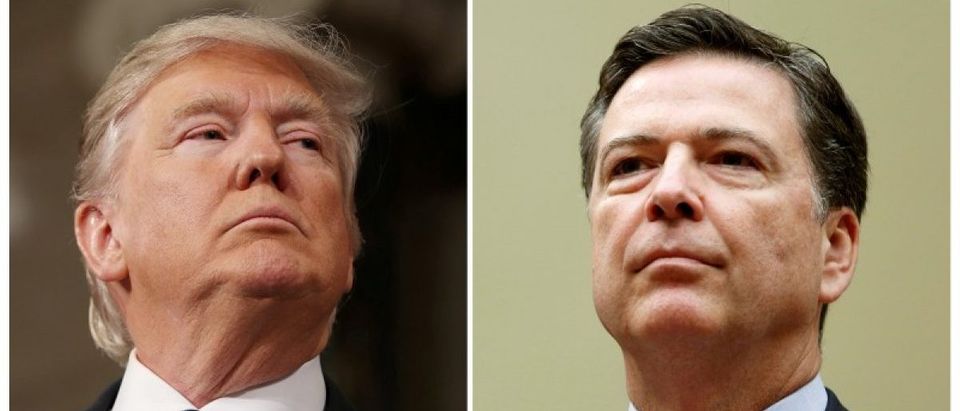Special counsel Robert Mueller has reportedly opened an obstruction of justice probe into President Donald Trump, but legal experts say Mueller has an uphill battle to prove such a case against the White House.
Former FBI Director James Comey, who was fired by Trump last month, kept detailed memos of his interactions with the president and one memo describe an occurrence when Trump spoke to Comey about the investigation into former national security advisor Mike Flynn.
Trump, according to Comey’s memo, The New York Times reported, said to Comey: “I hope you can see your way clear to letting this go, to letting Flynn go,” Trump added, “He is a good guy. I hope you can let this go.” Trump told Comey that Flynn had done nothing wrong, the memo said. Comey did not reply to Trump about winding down the probe, saying just, “I agree he is a good guy.”
Ken Starr, former independent counsel who investigated President Bill Clinton’s scandals in the 1990s told CNN Thursday how difficult it would be prove Trump or his team attempted to impede the Russia probe.
“It’s too soon to tell,” Starr said. “From what I have seen, and of course we don’t know a whole lot, the answer is no… Obstruction of justice is really a very hard crime to make out,” he said. “It’s not just, you want the investigation to go away, you suggest that the investigation goes away. You’ve got to take really affirmative action.”
Starr also pointed to the kind of language Trump used that Comey described in his memos actually helps Trump in his case.
“His literal language was, ‘hope,'” Starr said. “And I think that that redounds to the benefit of the president.” “He’s saying, ‘Golly, I sure wish this would go away, it’s in the way of my agenda. I need to run the country, and this is a terrible distraction, I hope you can see your way clear,'” Starr added. “That to me, just the language, is far removed from a directive.”
However, Harvard law professor Alan Dershowitz explained to CNN last week that even if Trump commanded Comey to drop the Flynn probe, Trump would have had the right to do that.
“The President could have told Comey you are commanded, directed to drop the prosecution against Flynn,” Dershowitz said. “The President has the right to do that. Comey acknowledges that. He says in the statement that historically, historically presidents have done that to the Justice Department. But in the last few years we’ve had a tradition of separation, but that tradition doesn’t create crime. Remember also what the President could have done. He could have said to Comey, stop this investigation, I am now pardoning Flynn. That’s what President Bush did in the beginning of the investigation of Caspar Weinberger.”
Dershowitz added, “Nobody talked about obstruction of justice. You cannot have obstruction of justice when the president exercises his constitutional authority to pardon, his constitutional authority to fire the director of the FBI, or his constitutional authority to tell the director of the FBI who to prosecute, who not to prosecute. So let’s get out of the weeds and let’s look at the big constitutional question.”
Last month, Florida International University law professor Elizabeth Price argued in a New York Times op-ed that Trump’s statements did not constitute an obstruction of justice.
“Such generic ‘he’s-a-good-guy-can’t-you-drop-the-charges?’ statements are routinely made to investigators and prosecutors. Defending one’s self, client or friend is a natural instinct, and beseeching leniency is not tantamount to obstruction. Holding otherwise would endorse a breathtaking expansion of obstruction, and be utterly inconsistent with First Amendment freedoms,” Price writes.
Other legal analysts told NBC News that while they do not think Trump could be legally prosecuted for obstruction of justice, the standard in Congress is different than in a court of law.
“Would he be convicted? I don’t know, but that’s not the right question to be asking. He’s not going to get prosecuted,” Jens David Ohlin, a professor and dean at Cornell Law School, said. “The more relevant question is, is this the type of obstruction of justice which is so corrupt that the House should take the extraordinary measure of impeaching the president, and for the Senate to convict him and remove him from power?”
“Maybe they’re obstruction, maybe they’re not technically illegal, maybe they’re just completely inappropriate,” Joyce Vance, an Obama-appointed U.S. Attorney for the Northern District of Alabama said.


